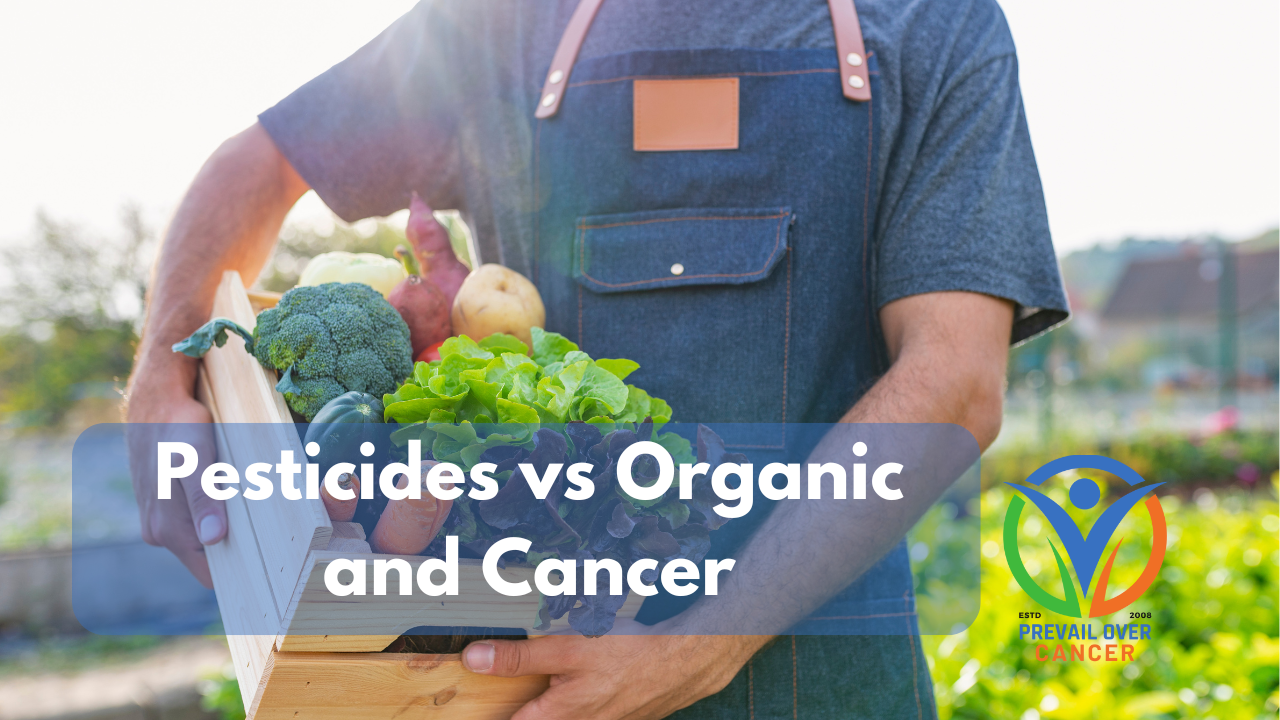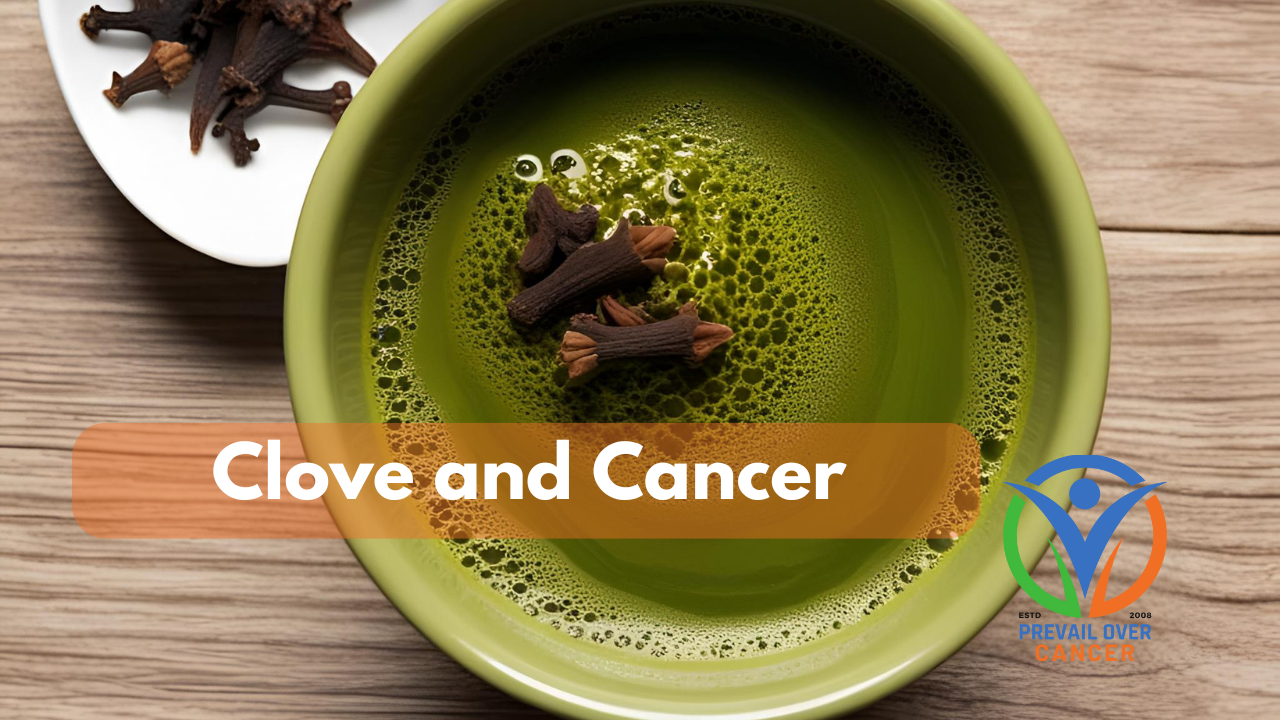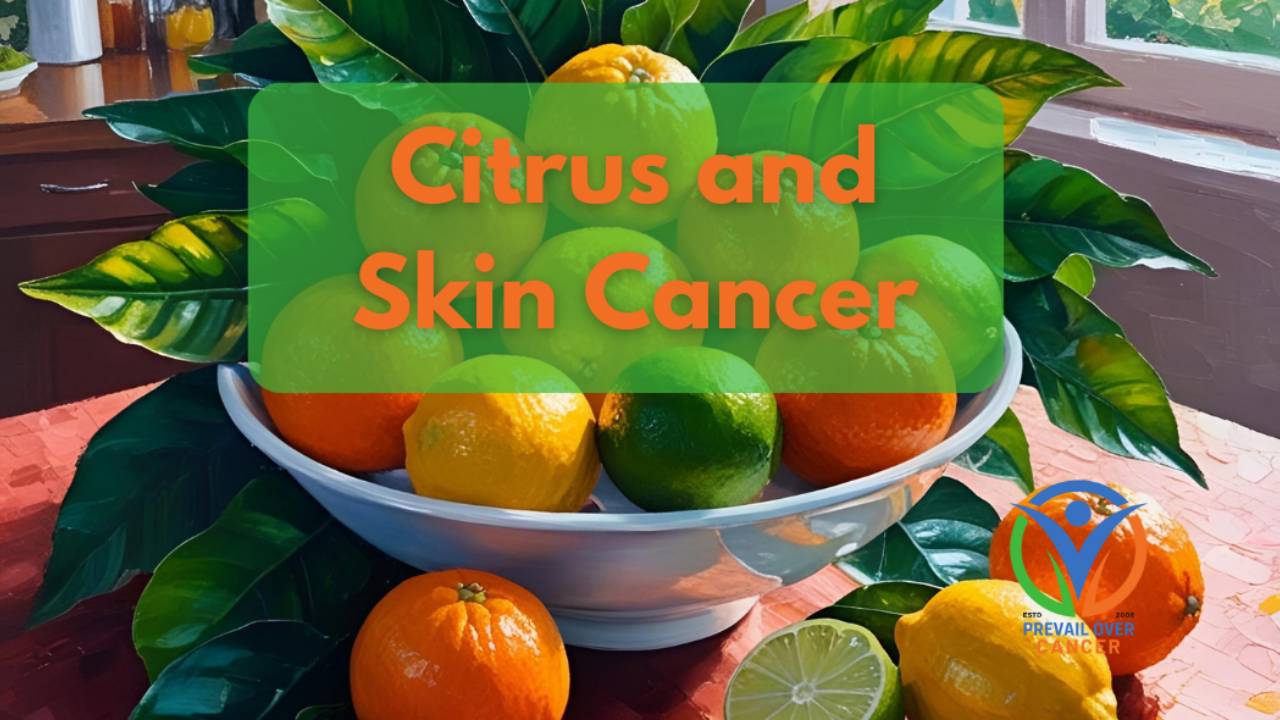Organic vs. Conventional Produce: Cancer Risk, Pesticide Exposure, and the Fight for Transparency

Exploring the Science Behind Organic Foods, Farmworker Health and Cancer Risks, and the Controversial Congressional Bill Shielding Pesticide Manufacturers
Researched and written by Keith Bishop, Clinical Nutritionist, Cancer Coach, Retired Pharmacist and Founder of Prevail Over Cancer.
As cancer rates continue to rise across the U.S., especially in agricultural states like Iowa, many are asking: could the food we eat—and how it’s grown—be part of the problem?
🚜 Conventional Produce and Pesticide Exposure
Conventional fruits and vegetables are often grown with synthetic pesticides and herbicides, including glyphosate, malathion, and chlorpyrifos—chemicals classified as probable or possible human carcinogens by the International Agency for Research on Cancer (IARC). While regulatory agencies like the EPA set limits on residue levels, recent studies suggest that even low-level, chronic exposure may contribute to cancer risk.
📍 Who’s Most at Risk?
- Farmworkers and pesticide applicat...
Clove and Cancer

Researched and written by Keith Bishop, Clinical Nutritionist, Cancer Coach, and Retired Pharmacist.
Cloves are the dried flower buds of the evergreen tree Syzygium aromaticum. They are commonly used as a cooking spice and have been used in traditional medicine for centuries.
Clove, a spice native to Indonesia's Maluku Islands, has been esteemed for centuries in traditional medicine systems such as Ayurveda and Traditional Chinese Medicine (TCM). Historically, it has been utilized to address many ailments, including dental pain, digestive issues, respiratory conditions, and reproductive health concerns. The therapeutic properties of clove are attributed mainly to its rich phytochemical composition, notably eugenol, eugenol acetate, and β-caryophyllene, which confer antimicrobial, anti-inflammatory, analgesic, and antioxidant effects.[i]
In traditional practices, cloves were commonly employed to alleviate toothaches and oral infections, owing to their potent analgesic and antis...
The Hidden Skin Cancer Risk of Citrus and Sun Exposure

Researched and written by Keith Bishop, Clinical Nutritionist, Cancer Coach, Retired Pharmacist
Citrus fruits are celebrated for their health benefits, but did you know they might pose a hidden risk when combined with sun exposure? Recent studies have raised concerns about certain compounds in citrus fruits that could increase the risk of skin cancer. Here's what you need to know to stay safe while enjoying the sunshine.
The Cancer Culprit: Psoralens and Furocoumarins
Citrus fruits, such as oranges, lemons, limes, and grapefruits, contain naturally occurring compounds called psoralens and furocoumarins. These compounds are known as photocarcinogens, meaning they can interact with sun ultraviolet (UV) radiation to cause DNA damage in skin cells. This damage may increase the risk of developing skin cancers, including basal cell carcinoma (BCC)[i] [ii] [iii], squamous cell carcinoma (SCC),[iv] and melanoma.[v] One population study found one serving per day of an increase in total citr...
Unlocking the Power of Fisetin: A Natural Ally in Cancer Prevention & Treatment
Discover the Potential of Fisetin in Enhancing Cancer Prevention and Treatments
Written by Keith Bishop, Clinical Nutritionist, Cancer Coach, and Retired Pharmacist
Imagine a simple, delicious addition to your diet that could significantly lower your risk of developing cancer. Sounds too good to be true? Enter fisetin, a natural flavonoid in your favorite fruits and vegetables. Recent research has highlighted its powerful anticancer properties, making it a promising candidate in the fight against one of the most prevalent cancers. Ready to discover how this humble compound can make a difference in your health journey? Let's dive into the fascinating world of fisetin and uncover its secrets.
Fisetin, a natural flavonoid in various fruits and vegetables, has garnered significant attention for its potential anticancer properties. This blog post delves into fisetin's anticancer benefits, its impact on cancer, food sources, and potential concerns, including drug interactions.
Anticancer...



